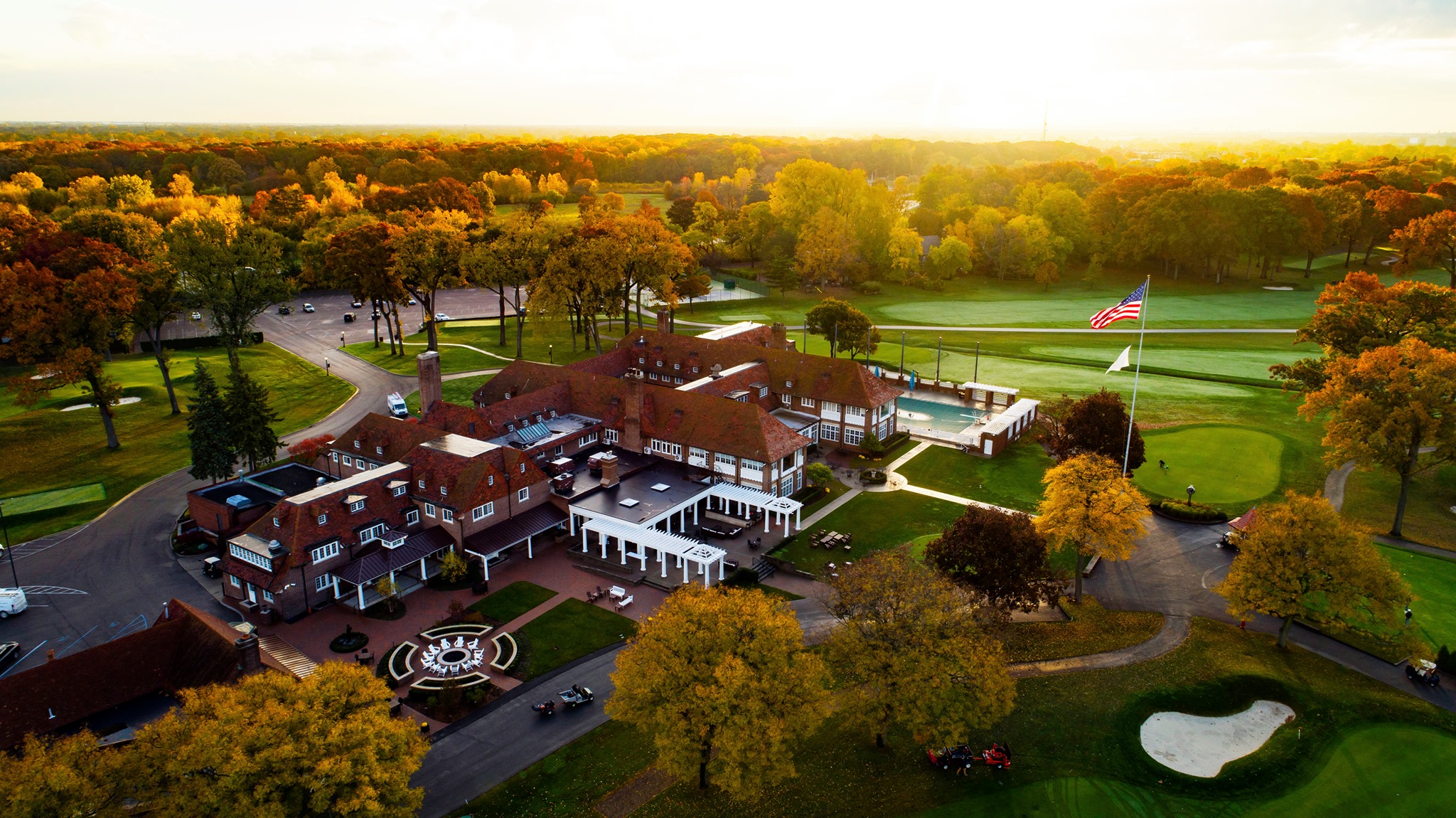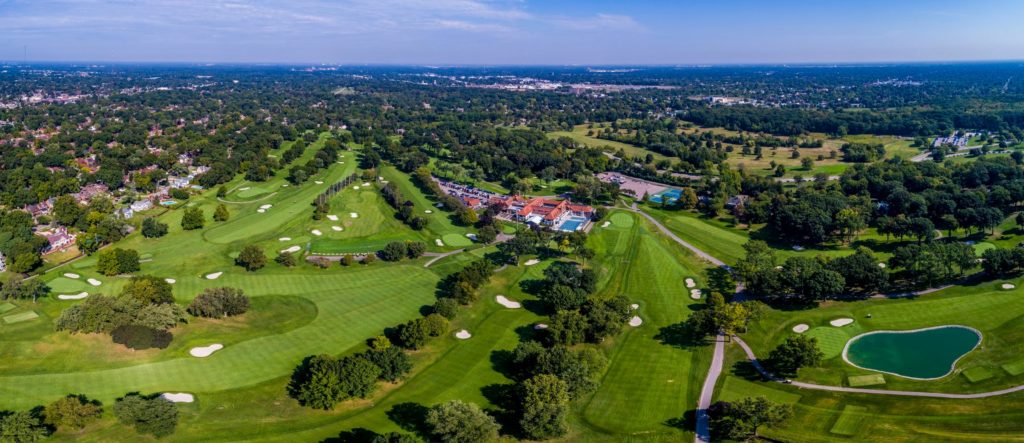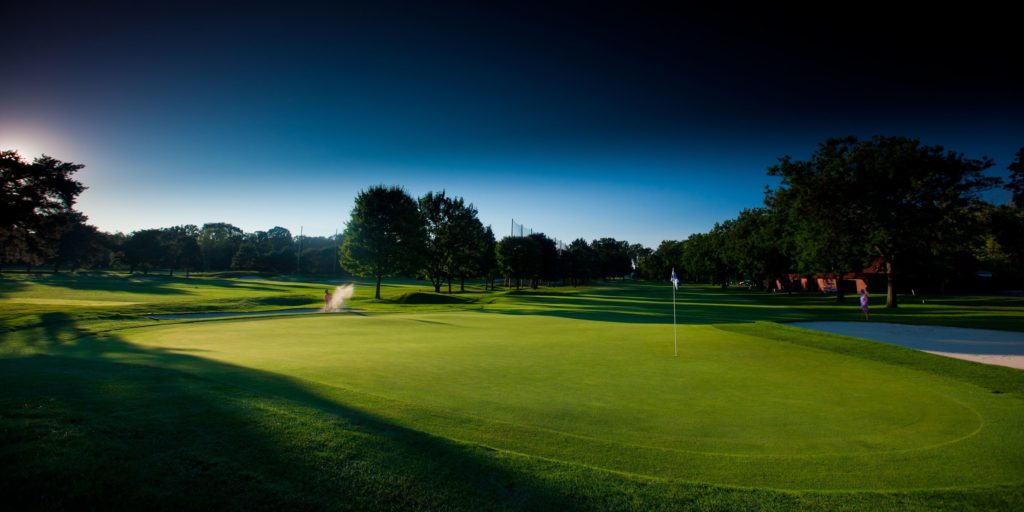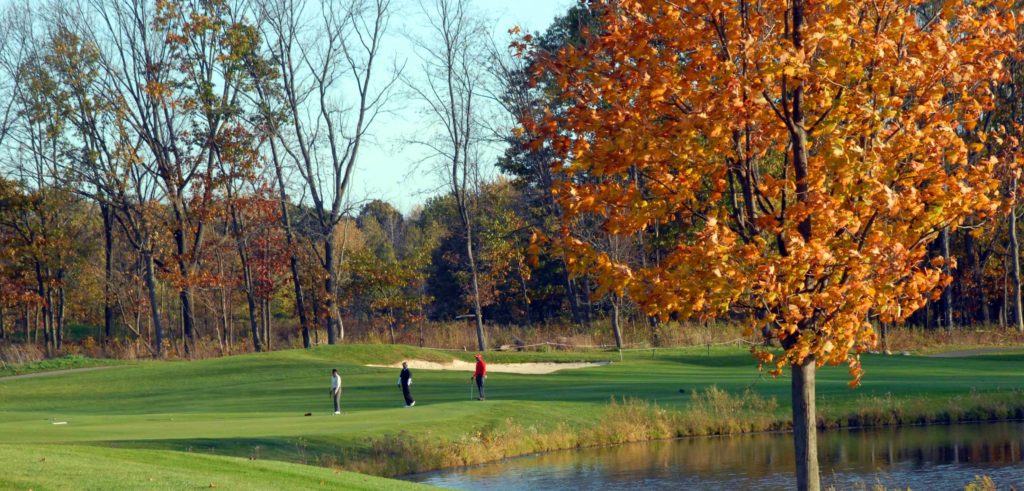
The story of the Detroit Golf Club, the host of the PGA Tour’s Rocket Mortgage Classic July 28-31, goes hand in hand with the tale of the Motor City – one of tradition, resurgence and excellence in the face of hard times, and, ultimately, redemption.
When the PGA Tour decided to return to Michigan in 2019 for the first time in 11 years, it was insistent that its event be played in Detroit proper, not one of the clubs or courses in the outlying suburbs.
Detroit Golf Club, which was founded in 1899 and has long been the bastion of golf in the city, was a natural place for the PGA Tour to play its first regular event ever in the city of Detroit.
Originally focused solely around golf, the Detroit Golf Club is home to two Donald Ross signature golf courses – fewer than 20 clubs in the United States can claim this distinction. Collectively, the two courses – the North and the South – host approximately 44,000 rounds annually.

Detroit Golf Club
Detroit Golf Club’s history
Detroit Golf Club has a long and storied history. Local businessman William Farrand and a group of his associates established the club as a six-hole course on 45 acres of farmland on the city’s north side at the turn of the 20th century. When the club was first founded, the roster was limited to 100 members and its clubhouse remained closed on Sundays.
The club was later expanded to nine holes, then moved two miles south in 1902 and in 1906 an 18-hole facility opened once the land was acquired to answer its growth. In 1916, a group of members went south for the winter to Pinehurst, N.C. and persuaded Ross to build a 36-hole facility in the Motor City. It soon became the first Ross-designed golf club in Michigan and is believed to be the first 36-hole club that he designed.
The club’s most prominent member at the time was automaker Henry Ford. Ross’ brother Alec, the 1907 U.S. Open champion, became Detroit Golf Club’s head golf pro in 1916 and held the position until his retirement in 1945.
Breaking down the golf
Over the past five years both courses have been restored to their original glory, with the North undergoing extensive tree removal – especially on the back-nine – to open up corridors that had narrowed since its opening in 1916.
Detroit Golf Club is a delight for anyone with a keen appreciation for course architecture. The North course, on which 17 of the holes for the Rocket Mortgage Classic is played, stands out for its traditional design and playability.
Both courses are every flat, with only 10 feet of elevation change between the highest and lowest spots. Ross preferred to let the natural surroundings determine the design of his courses. And that classic approach is evident on both tracks at Detroit Golf Club, which is the oldest host venue on Tour and a bit of a dinosaur as compared with many tracks used for the best players in the game.
Each hole starts off easy but becomes progressively more challenging the closer you get to its small, elevated greens. The fairways are dotted with strategically placed bunkers, often leaving players in narrowed landing zones.

The North Course at Detroit Golf Club
Detroit Golf Club’s North Course is made to reward those who take their time, and make calculated, accurate shots. The front nine and the back nine play differently, with the front lined by trees while the back is mostly an open layout. The round starts by looking relatively easy and ramps up in difficulty with its approaches and on the greens. Fairway bunkers are strategically placed to pinch landing zones. Nearly all of the greens are elevated, which for the most part were the only relief on an otherwise flat course.
The North Course as the members play it is 7,013 yards at the tips; the pros get an added 300 yards with the addition of the No. 1 hole from the South Course and added tee boxes.
The second on the North (which plays as the fourth for the PGA event) is one of two par-5s on the front and the course’s longest hole, extending to 557 yards. An accurate approach shot to the small, contoured green is the key to scoring with the putting surface still very reachable in two shots.
The 8th hole (the opening hole for the tournament) is a 343-yard par-4 that’s original to the course and tees off near the base of a bent oak that marks a Native American trail between Detroit and Saginaw.
On the back nine, the 14th, 15th and 16th holes come together to form “Area 313,” named after Detroit’s area code and a place where players can go low.
The trio starts with a 498-yard, risk-reward par-5, with a large pond short of the green. The layup can be just as challenging because of the need to avoid a cross bunker on the right and the penalty area on the left.
The 15th is a par-3 that plays longer than its 160 yards might suggest, with punitive bunkers short, left, and right of the putting surface and a small, elevated green. No. 16, a 446-yard par-4, offers scoring opportunities for those who find the narrow fairway and navigate the one of the more underrated greens on the course.
The South Course at Detroit Golf Club
The South Course, which plays at 6,038 yards and is a par-68, only gets about 30 percent of the club’s play but is Detroit Golf Club’s true jewel, with the original Ross design on 17 of 18 greens. It has tons of character, and golfers have to be more of a true shot-maker to succeed.
Detroit Golf Club offers an upscale sanctuary in the heart of the bustling city it calls home. Prior to the Rocket Mortgage Classic, the club hosted both the Western Amateur and U.S Mid-Amateur. The North course was ranked as No. 14 in Michigan on Golfweek’s 2021 list of Best Private Courses in Michigan.
In an age when venues are using length to counter the power game, Detroit Golf Club offers a welcome change of pace along with a full bowing of the head, not just a nod, to the game’s roots. And that’s a good thing.

Lyon Oaks
Other options in the Motor City
While it might be a challenge to wrangle an invite to play private and exclusive Detroit Golf Club, there are plenty of other public options in the Motor City and its surrounds. Here are four:
The Orchards Golf Club (Washington)
Designed by Robert Trent Jones Jr. on 525 acres of apple orchards and opened in 1993, the Orchards is as true a test of golf, with classic looks and style of play reminiscent of the private clubs of the 1920s. Set 40 miles north of Detroit, the course offers elevation changes aplenty and subtle greens, and challenges the golfer by permitting a variety of approaches to each hole.
Lyon Oaks Golf Club (Wixom)
Lyon Oaks was designed by the late, great Arthur Hills and is the shining jewel of the quintet of courses run by Oakland County. Set about a half-hour northwest of downtown, Lyon Oaks has an “Up North” feel nestled and offers a stunning setting among a hardwood forest and wetlands. Wide fairways enhance playability, and the course includes a state-of-the-art practice facility. Be mindful of the wind, which can turn this track into a growling beast.
WestWynd Golf Course (Oakland Charter Township)
Designed by Craig Schreiner and opened in 2002, just north of the city, WestWynd offers plenty of elevation, rugged bunkering, and huge, multi-tiered but subtle putting surfaces. No two holes feel the same on this 6,753-yard course, which calls for the golfer’s course management skills as much as his or her length.
Rackham Golf Course (Huntington Woods)
Rackham Golf Course, designed by Ross, was established in 1923 and is located next to the Detroit Zoo about two miles north of Detroit Golf Club. The relatively open layout and contoured greens are protected by numerous bunkers which were renovated in the spring of 2007. Rackham has been the home to two U.S Amateur Pub Links Championships and is rated one of the Top 10 municipal golf courses in Michigan.

